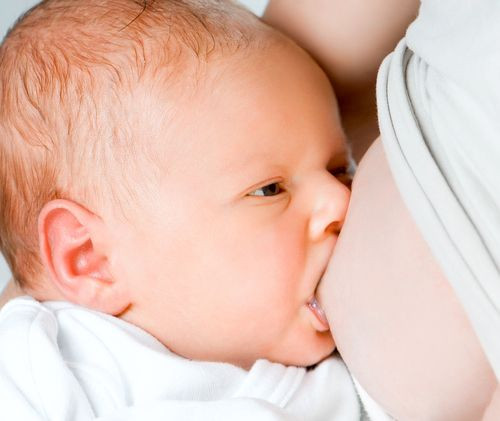Protein In Breast Milk Protects Preterm Babies from Fatal Intestinal Infection, Necrotizing Enterocolitis

Another benefit was added to the huge repertoire of the virtues of breast milk when scientists found that it protects premature infants from a potentially fatal gastrointestinal disease called necrotizing enterocolitis, or NEC. Researchers at the Children's Hospital, Los Angeles, found that protein neuregulin-4 (NRG4) present in breast milk, but absent in formula, can protect vulnerable premature infants from intestinal damage caused by NEC. The research is published in the American Journal of Pathology.
Pediatricians for years have been extolling the virtues of breast milk. And for good reason, too. Packed with antibodies and the perfect combination of proteins, fats, and carbohydrates, it gives an infant all the nutrition he requires while protecting against infections.
NEC is a common but serious intestinal disease among premature infants. Several probable causes such as underdeveloped intestine, injury to the intestinal wall, or an infection, cause a hole or perforation in the intestinal wall. When this happens, the intestine is no longer capable of holding waste matter, and this leaks out into the blood stream, leading to a gastrointestinal emergency.
The perforation in the intestinal wall is caused due to destruction of specialized intestinal cells, called Paneth cells. Located throughout the small intestine, their job is to protect the organ from microbial damage. The Paneth cells also support the intestinal stem cells that replenish damaged intestinal wall cells. NEC occurs when these cells are destroyed.
NEC leads to several complications like constipation, diarrhea, vomiting, apnea, and hypotension. While it mostly affects preterm babies, full-term babies with congenital birth defects also develop this condition. Formula feeding is also known to cause NEC, which is fatal for 30 percent of the babies who develop it. Children who do survive may suffer lifelong complications that may include removal of part of their intestine and dependence upon intravenous nutrition.
The new research has found that the NRG4 protein found in breast milk offers a normal protection mechanism against NEC in an immature gut.
"If a baby on formula encounters an NEC trigger such as intestinal infection or injury, he or she may be at increased risk for a life-threatening condition,” Dr. Mark R. Frey said in a statement. He is the study's principal investigator at The Saban Research Institute of Children's Hospital, Los Angeles.
Investigations were conducted on human breast milk and its action on cultured infant intestinal tissue that were infected with the bacteria that causes NEC. Further tests were also conducted on mouse models and through in vitro analysis. Rats that were formula-fed developed a condition similar to NEC, but those whose formula was fortified with NRG4 were protected against intestinal damage. Infected, cultured intestinal tissues were also protected by NRG4.
The researchers concluded that NRG4, found exclusively in human breast milk and not formula, protected the intestinal Paneth cells. They do so by binding specifically with a receptor found in the intestine, ErbB4, which blocks inflammatory intestinal damage.
"We're finding a protective protein in breast milk, with its receptor in the intestine," Frey said. "Given that NEC is a significant clinical problem without an effective treatment, we plan to evaluate NRG4 for its therapeutic potential in this disease."
Source: Frey MR, McElroy SJ, Castle SL, et al. The ErbB4 Ligand Neuregulin-4 Protects against Experimental Necrotizing Enterocolitis. American Journal of Pathology. 2014.



























